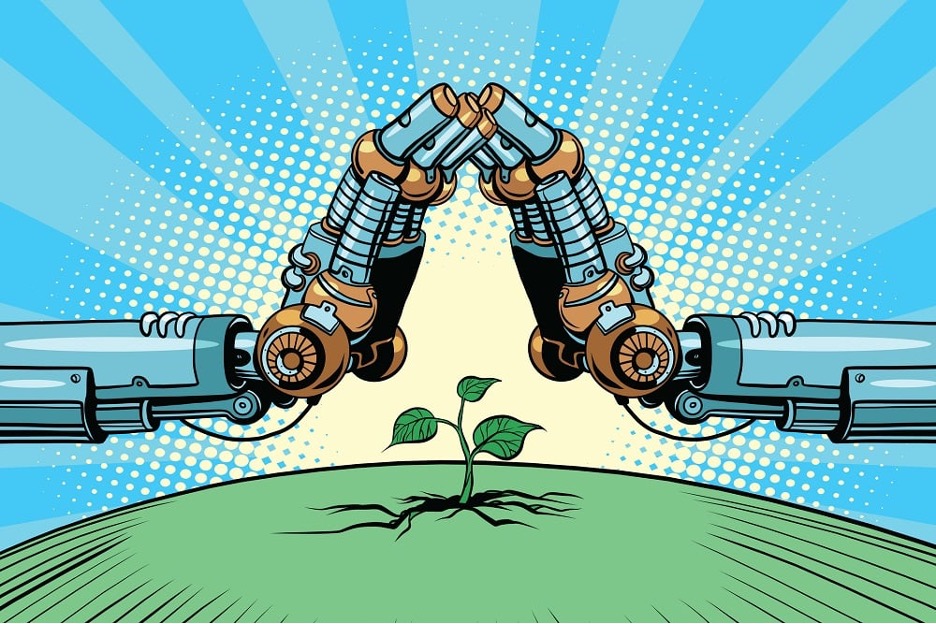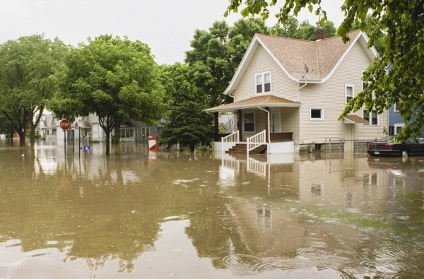Climate change is one of the most significant global issues facing our world today. The ecosystem of our planet and the very existence of modern society is jeopardized by human activities such as burning fossil fuels and destroying forests. There is an immediate need to develop innovative solutions to lessen the impacts of climate change due to rising sea levels, rising temperatures, and an increase in natural disasters. The implementation of artificial intelligence is one strategy that has the potential to reduce the harmful effects of climate change. In recent years, some encouraging indications have been made, but more work still needs to be done. In this blog, we will talk about how artificial intelligence (AI) is being used to combat climate change and the potential environmental impacts of climate change.

The progression of climate change throughout history
The topic of climate change has been receiving increasing attention recently. How did we wind up in this predicament? In order to have an understanding of climate change, we need to investigate the history of the climate on Earth and the variables that have contributed to the changes we are seeing. The Earth’s climate has undergone various shifts throughout its history, from ice ages to warm periods. These shifts are predominantly the result of changes in the orbit of the Earth. Nevertheless, over the past several centuries, humans have been the primary driver of the climate change happening in our world today. An important turning point that contributed to our environment’s deterioration was the Industrial Revolution’s beginning. The increased use of fossil fuels like coal and gasoline in energy production caused the release of greenhouse gases. This phenomenon, also known as the greenhouse effect, is caused by pollutants that are incredibly harmful to the environment and contribute to a wide range of health problems.
Svante Arrhenius was one of the first scientists to investigate the impact of carbon dioxide, and he predicted that average global temperatures would rise by 9 degrees Fahrenheit over the next century. In the 1950s, scientists started measuring carbon dioxide levels and using climate models to evaluate their effect on the planet’s climate. On June 23, 1988, a NASA physicist named James Hansen testified before a Senate committee about the cause-and-effect relationship between greenhouse gasses and global warming. This event is widely regarded as the defining moment in which a call to action regarding climate change was made. The Intergovernmental Panel on Climate Change (IPCC) was created in 1988 to provide scientific assessments of climate change, and its impact led to increased international attention being paid to the problems. Even after three decades, climate change continues to be a problem that needs to be addressed before it is too late.

Leveraging AI to combat climate change
Having the ability to use AI is going to be more critical as the years go by. The use of AI can be beneficial in reducing emissions, increasing the use of renewable energy sources, and improving energy efficiency. Many countries are planning to implement a net-zero emission goal by 2050, and being able to create meaningful technologies will be essential to making the world a better place. In a Climate AI survey by BCG, 87% of private and public sector CEOs believe AI will be an essential tool. However, where do we start since climate change is such a complex and sensitive global issue? You have some people who believe in climate change and others that don’t, which causes a clash in the best way to tackle this mighty issue.
There are many different ways that AI can be utilized to achieve specific goals. The greatest value of AI that business leaders think will be beneficial is by being able to reduce and measure emissions. A new study provided evidence that global warming is on track to reach 1.5 degrees above pre-industrial averages in the early 2030s, regardless of how much greenhouse gas emissions rise or fall. This estimate came from an analysis using artificial intelligence to predict climate change. Although many business leaders support using AI to combat climate change, only 43 percent have a vision for how to use it. This is understandable as AI is a challenging topic, and many need to gain knowledge on ways to move forward.

Future Outlook
Artificial intelligence is a powerful tool that can help address the challenge of climate change. With the use of improved climate modeling, it will be much easier to track changes in the Earth’s climate and improve disaster response. However, it is essential to realize that it will take a lot of work, and the use of AI alone is not a fix-all solution. AI is one tool that we can use to address this global challenge, but we must take it one step at a time. The world must be able to work together because this issue will only become more of a problem as time passes. Through the use of AI, we can create a more sustainable and resilient world for generations to come.